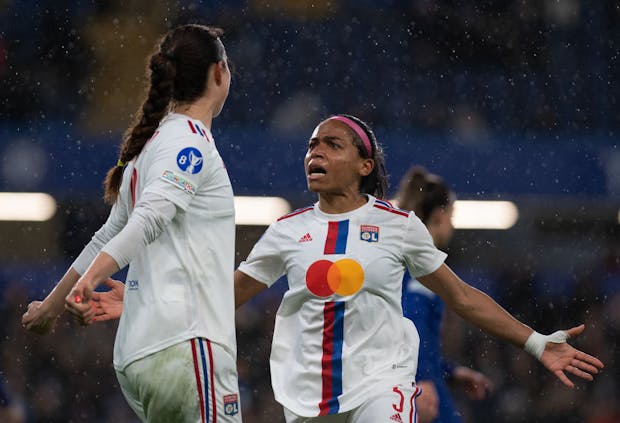
Multi-club ownership (MCO) in women’s football is a necessity to growing the overall quality of the game and, eventually, commercial revenues, according to two leading protagonists.
While MCO in the men’s game has come under the spotlight of Uefa, principally over concerns of conflicts of interest and its impact on the transfer market, it is being pursued as the best vehicle to increase the professional standards of the women’s game.
It was a recurring subject at the Financial Times Business of Football Summit in London late last week, where US-based investors Michele Kang and Victoire Cogevina Reynal, whose Mercury 13 group is set to announce its first club later today (Monday), called for the focus to be on running women’s teams as independent businesses, rather than sharing operations with men’s teams.
Kang, who owns the National Women’s Soccer League’s Washington Spirit, France’s Olympique Lyonnais Feminin (OLF) and English second-tier side London City Lionesses, believes the MCO model is the best way to build an infrastructure that best supports female athletes.
She said: “I know some multi-club ownership is not being viewed positively. But for women’s sports, it’s a necessity, rather than a luxury or a choice because so much investment is needed… A lot of team sports borrow their training manuals and performance manuals from men’s teams, in part because there is no data about women. 94 per cent of all sports- and performance-related research in science data are dedicated to men…
“So I decided that’s the first area I would invest. I have 20 people – and it’s growing – dedicated only to the area of research and practical training of women sports. It is impossible to do that for just one team, but if you do it across multiple teams, you can do it once and make it available to all other teams.”
She continued: “Multi-club ownership is not just about teams but investing in an overall ecosystem… I want to buy teams in other countries and make this advanced data analytics and performance data available… When that becomes a global phenomenon, that has a significant impact on media dollars, which is almost zero, and it grows the transfer market, which is almost nothing right now. You need to build scale and acceleration so that women’s sports can take off and have the commercial viability.”
As the sole independent women’s club in English football, the London City Lionesses was the only club Kang could buy where she was not obligated to also buy the men’s team.
Sports lawyer Ian Lynam, the founding partner of Northridge Law, believes changes are needed to make sure the women’s game can grow.
He said: “Michele bought the only independent football club in England.. We need to allow capital to flow into women’s football in England or it will go elsewhere. I think with the move to Newco there’s a real opportunity there.”
Newco is the new organisation being set up to run the professional game. All 12 clubs in each of the Barclays Women’s Super League (WSL) and Barclays Women’s Championship (WC) will act as shareholders in NewCo, which will be led by chief executive Nikki Doucet.
WSL clubs will receive 75 per cent of the combined revenues from the two divisions and will have all the voting power on commercial and broadcast matters.
Reynal’s Mercury 13, meanwhile, has previously outlined plans to invest $100m (€92.4m) in the women’s game over the next few years. The first club in its portfolio is expected to named in an online unveiling today at 6.30pm (CET).
The US-born, Greek-Argentinian tech entrepreneur said: “Women’s football has been run in the shadow of men’s football. Women’s football is growing financially but it needs a certain skillset and investment of resources that the men’s game is not able to provide today. Mercury 13 is one of hopefully many other options where clubs can have a dedicated resource funding.
“Men’s football is a mature business run in a very specific way and its revenues are set in stone… The women’s game is like a start-up… and that requires a different skillset. Creating independence by providing those types of resources early on will be fundamental in their success and ultimately build a more sustainable business model.
“At Mercury we really believe in investing and then going straight into the commercial opportunities to make sure these teams become commercial assets that generate revenues that can then be invested into the football side.”
Mercury 13 had been linked with English Championship club Lewes, but those talks broke down late last year when it emerged the non-league men’s side would not be included in any deal. Talks for top-tier teams in Spain and Italy are said to be advanced.
It counts the likes of Luis Vicente, former Fifa chief innovation officer, Nancy Hensley, formerly chief product and marketing officer at Stats Perform, and former pro footballers Eniola Aluko and Arianna Criscione as employees.
Click here for details of SportBusiness’ Multi-Club Ownership report.